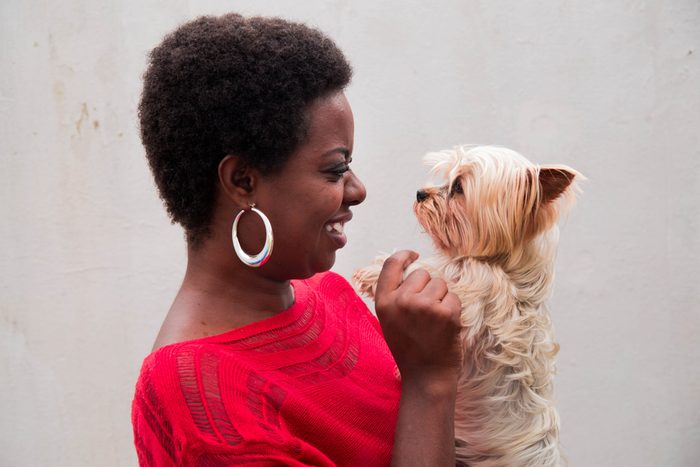Dogs notice when you’re sad, mad, or suspicious. They can even detect cancer. Turns out, dogs know more about your emotions and health than you ever suspected.

Clubs Offering:
Every dog owner has wondered what dogs think about. Do they ponder their place in the universe? Or are their minds simply living in the moment, consumed by thoughts of chew bones and squirrels? Scientists share that
curiosity, and one of the questions they study is whether dogs have self-awareness. In other words, do they think of themselves as individuals separate from other beings and the world around them. A new research paper in the journal Scientific Reports supports the idea that dogs do, in fact, have a sense of self-awareness, at least in terms of their body.
The classic, but now controversial, test of self-awareness is the mirror test. In this test, researchers secretly mark an animal’s body then give that animal access to a mirror. If the animal touches the mark while looking in the mirror or turns to examine the mark’s reflection, then researchers conclude that animal has self-recognition, a huge indicator of self-awareness.
Many animals have passed the mirror test including great apes, dolphins, elephants, and magpies. But dogs fail, which comes as no surprise to anybody who has watched their puppy try to befriend the dog in the mirror. However, vision isn’t a dog’s primary sense. Studies of self-recognition that used the scent of urine have shown dogs can use their nose to recognize their own scent. Is that the canine equivalent of passing the mirror test? The jury is still out, so scientists at Eötvös Loránd University decided to take a different approach. They looked at a more basic form of awareness: body awareness.
How to show your pup some serious love in their language
Canine companions are some of our dearest loved ones, and dog lovers want to make sure they know it! We all know pups can be incredibly intuitive, but do dogs really know just how much we love them?
The proof is in the science.
Canine cognition is the study of dogs’ brains and has shown that when you and your dog interact, a love hormone is released causing you to feel happier and more bonded as best friends. This hormone is called Oxytocin, and is the same chemical given off when humans stare at their babies!
Oxytocin is released for both you and your dog when you pet them, play with them, or look at each other.
Studies have shown that dogs tend to lock eyes to show affection, so it’s safe to say your dog feels the love when you’re looking longingly at each other.
Since dogs can’t exactly say “I know you love me and I love you too!” there are a few other ways animal lovers can be sure the message is clear.
14 Signs Your Dog REALLY Loves You, Confirmed by Science
Dog lovers everywhere enjoy expressing the love and affection they have for their dogs. But does your dog understand the depth of love you have for him or her?
According to Dr. Brian Hare, a canine cognition specialist, our dogs do know we love them. Dogs and humans have the ability to form a special neural connection. This connection is the same human oxytocin bonding pathway used by parents and babies. When you stare at your dog, the oxytocin levels in both your brain and your dog’s brain go up, the same as when you pet and play with them.
Pet parents across the country can attest to the surge of joy felt when experiencing that special bond. It’s nice to know there’s a scientific explanation for why playing and being close to our dogs makes us – and them – feel so happy.